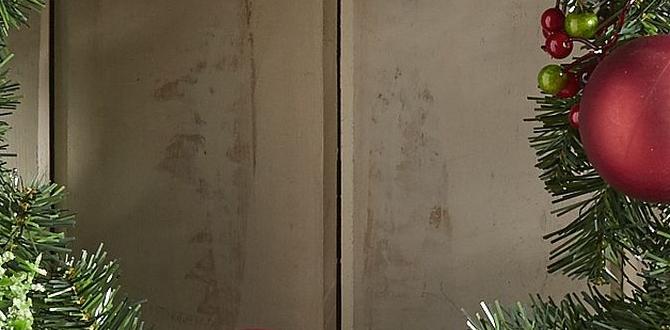Have you ever thought about growing your own herbs? Gardening herbs for beginners is a joyful adventure. Imagine stepping outside to snip fresh basil for your pasta or mint for your lemonade. It sounds delightful, doesn’t it?
Many people believe gardening is hard, but that’s not true. Starting small makes it easy and fun. Did you know that some herbs can grow just in pots on your kitchen windowsill? You don’t need a big yard to start.
Plus, herbs are useful! They can add flavor to meals and enhance your garden’s beauty. Growing herbs can even be a great science project for kids. So, why not dig in and explore this exciting hobby? Your green journey starts now.
Gardening Herbs For Beginners: A Simple Guide To Success
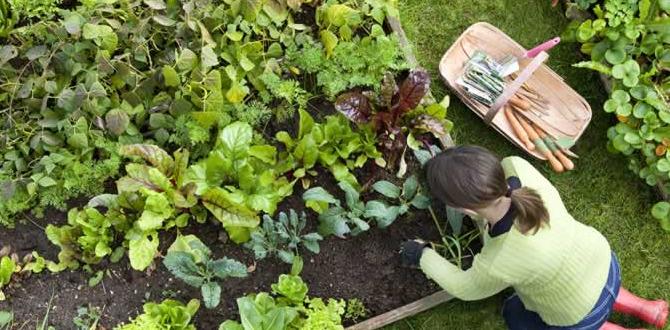
Gardening Herbs for Beginners
Growing herbs can be a fun and rewarding hobby. Imagine picking fresh basil for your pasta or mint for a refreshing drink. Beginners can start with easy herbs like basil, parsley, and chives. They grow well in small spaces and need little care. Did you know that herbs can even repel pests? This makes gardening more enjoyable! Plus, fresh herbs add delicious flavor to meals. So, why not make your own herb garden today? It’s simpler than you might think!Choosing the Right Herbs for Your Garden
Popular herbs for beginners: basil, parsley, mint, and chives. Factors to consider: climate, space, and culinary uses.Starting a herb garden can be exciting and rewarding. For beginners, popular choices include:
- Basil: Great for pasta dishes and pesto.
- Parsley: Adds flavor to many meals.
- Mint: Perfect for teas and desserts.
- Chives: A mild onion taste for salads.
When choosing herbs, consider your climate. Some herbs thrive in warm weather while others prefer cooler temperatures. Space is important too. You’ll need enough room for herbs to grow. Finally, think about how you’ll use them in cooking. Pick herbs you love!
What herbs are best for beginners?
Basil, parsley, mint, and chives are excellent choices for new gardeners.
Essential Gardening Tools and Supplies
Basic tools: trowel, pruners, and watering can. Soil, pots, and fertilizers: what beginners need.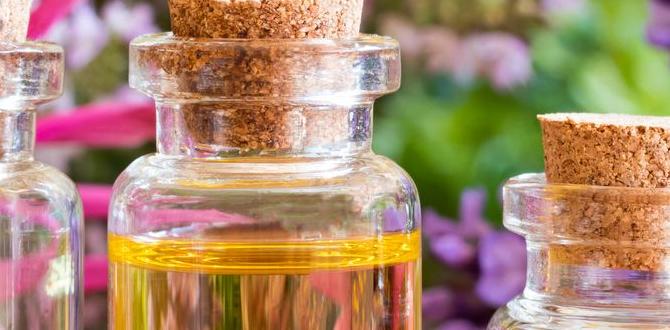
Every gardener needs some basic tools. Start with a trowel for digging, pruners for cutting, and a watering can for hydrating plants. These tools make gardening easier and more fun. You’ll also need good soil and suitable pots to help your herbs grow. Fertilizers will give them extra nutrients for healthy growth.
- Trowel – for digging and planting
- Pruners – for trimming leaves and stems
- Watering can – for smooth watering
- Pot – holds the plant
- Soil – provides nutrients
- Fertilizer – boosts growth
What tools do I need to start gardening?
Start with a trowel, pruners, and a watering can. Good soil and pots are also essential.Soil Preparation and Planting Techniques
How to test soil quality and amend accordingly. Stepbystep instructions for planting herbs from seeds and seedlings.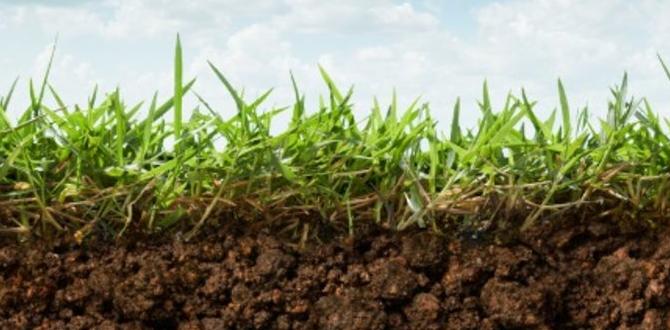
Before you plant herbs, check your soil. You can test its quality easily. Use a soil test kit from a garden store. This will tell you if your soil is too acidic or lacks nutrients. If needed, add compost or fertilizers to improve the soil.
Follow these steps to plant herbs:
- Choose your seeds or seedlings.
- Dig small holes in the soil.
- Place seeds or seedlings in the holes.
- Cover them lightly with soil.
- Water gently.
Make sure to keep the soil moist as your herbs grow. Soon, you’ll see fresh herbs ready for your kitchen!
How do you know if soil is good for planting herbs?
To know if soil is good for planting herbs, test for pH and nutrients. A balanced soil is usually between 6 and 7 pH. Adjust with compost if needed.
Watering and Maintenance for Healthy Growth
Recommended watering schedules and techniques. Importance of weeding, mulching, and monitoring for pests.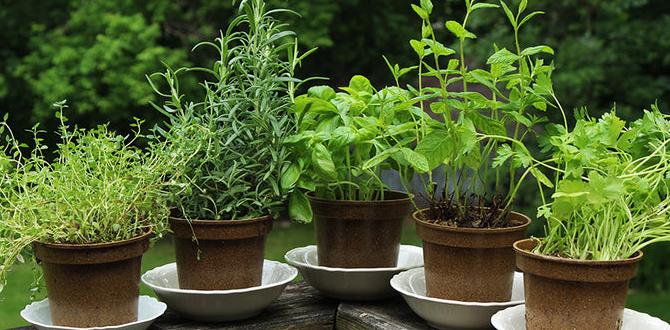
Watering your herbs is like giving them a drink, and they love it! Most herbs need water twice a week, but check the soil first. If it’s dry, it’s time for a splash! Spray them lightly to keep them cool. Weed regularly; weeds are like party crashers for plants. Use mulch to keep the moisture in and the weeds out. Lastly, play detective by looking for bugs. Keep an eye on your herbs for any unwanted guests!
| Herb | Watering Schedule | Weeding Frequency |
|---|---|---|
| Basil | Twice a week | Weekly |
| Mint | Every 3 days | Twice a month |
| Thyme | Once a week | Monthly |
Harvesting Your Herbs: Tips and Techniques
When and how to harvest for maximum flavor. Best practices for drying and storing herbs.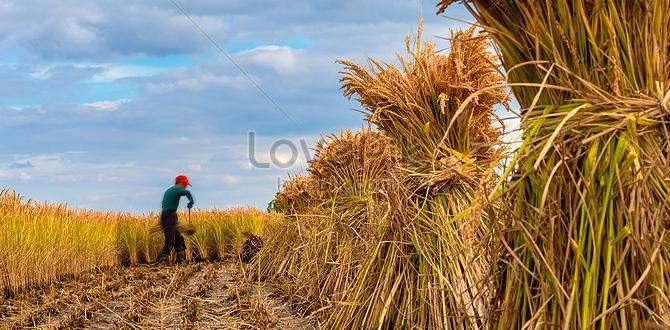
Harvest herbs in the morning when the dew has dried. This time gives the best flavor. Use sharp scissors to cut stems just above a leaf node. This helps the plant grow more leaves. For drying, hang the herbs upside down in a dark, dry place. Store dried herbs in airtight containers. Keep them away from sunlight for the best taste.
When is the best time to harvest herbs?
The best time to harvest herbs is in the morning after the dew dries. This helps keep more flavor in your herbs.
Best Practices for Drying Herbs:
- Hang herbs upside down to dry.
- Keep them in a dark, dry spot.
- Use airtight containers for storage.
Common Challenges and How to Overcome Them
Dealing with pests and diseases: signs and solutions. Addressing environmental issues: sunlight and temperature management.Many beginners face challenges with their herb gardens. Pests and diseases can appear in surprising ways. Look for yellow leaves or holes in leaves as signs. Use natural remedies like soap or neem oil to help. For environmental issues, check sunlight and temperature. Most herbs love warm, sunny spots. They may struggle in too much shade or cold weather.
- Check for pests often.
- Use quality soil.
- Maintain good airflow.
What signs show pests or diseases in my herbs?
Yellowing leaves, holes, or wilting can mean pests or diseases. Regular checking helps catch issues early.
How to manage sunlight and temperature?
Observe where your herbs grow. Most herbs thrive in 6-8 hours of sunlight daily. Move them if they don’t seem happy!
Expanding Your Herb Garden: Advanced Techniques
Companion planting: which herbs grow best together. Exploring container gardening options for limited spaces.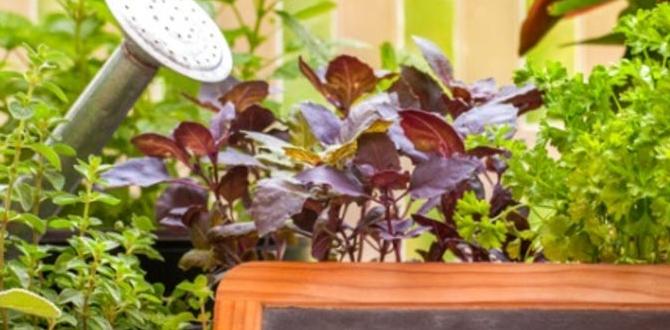
Expanding your herb garden can be fun! Try companion planting to enhance growth. For example, basil loves being near tomatoes. They help each other grow better. If you have limited space, container gardening is a great option. You can use pots or window boxes. Herbs like chives, oregano, and parsley thrive well in containers. This way, you can enjoy fresh herbs even in small areas!
What are the best herbs to plant together?
Some great companions are:
- Basil with Tomatoes
- Cilantro with Chili Peppers
- Chives with Carrots
These pairings help each plant grow strong and healthy!
Inspiring Recipes to Utilize Your Fresh Herbs
Simple recipes featuring beginnerfriendly herbs. Preservation techniques: making herbal oils and infusions.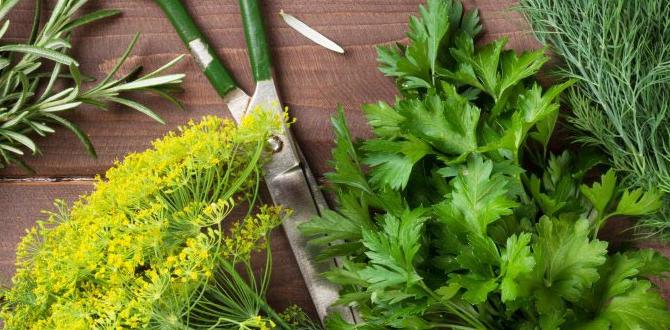
Fresh herbs are like magic in the kitchen! You can use them in many tasty dishes. For example, add basil to pasta or sprinkle parsley on salads. Want something fancy? Try making herbal oils! Just mix your favorite herbs, like rosemary, with olive oil. Let it sit for a week, and voila, fancy oil for dipping bread! You can also infuse herbs into vinegar for a zesty addition to recipes. Here’s a quick table to inspire your herb adventures:
| Herb | Simple Recipe |
|---|---|
| Basil | Pasta Sauce |
| Parsley | Garnish for Salads |
| Mint | Refreshing Tea |
When cooking with herbs, don’t be shy! Taste as you go, and remember: more herbs = more yum! Happy cooking!
Conclusion
In conclusion, starting a herb garden is fun and easy for beginners. Choose simple herbs like basil and mint. Use good soil and water them regularly. Be patient as they grow. You can use your herbs in cooking, making meals taste better. So, why not grab some seeds and start planting today? Happy gardening! For more tips, read about caring for your plants.FAQs
What Are Some Easy-To-Grow Herbs For Beginners In Home Gardening?Some easy herbs to grow are basil, mint, and parsley. You can plant them in small pots or in your garden. Basil loves sunlight, while mint prefers some shade. Parsley is easy to grow in both places. Water them regularly, and soon you’ll have fresh herbs to use in your meals!
What Conditions Do Herbs Need To Thrive, Such As Sunlight, Soil Type, And Watering?Herbs need a lot of sunlight to grow. Most herbs like at least six hours of sun each day. The soil should be rich and well-drained, so water doesn’t sit in one place. You should water herbs when the top of the soil feels dry. This helps them stay healthy and strong.
How Can I Properly Care For And Maintain My Herb Garden Throughout The Growing Season?To care for your herb garden, water your plants once a week, especially when it’s hot. Make sure they get plenty of sunlight, about six hours a day. We should trim the herbs regularly so they keep growing strong. Check for any bugs or diseases, and remove them if you see any. Finally, use mulch to hold in moisture and keep the weeds away.
What Are The Best Methods For Harvesting And Preserving Fresh Herbs?To harvest fresh herbs, pick the leaves when they are big and healthy. Use scissors or your fingers to cut them. After harvesting, wash the herbs gently with water to remove dirt. You can dry herbs by hanging them upside down in a warm, dark place for about a week. To store dried herbs, keep them in a glass jar with a lid, away from sunlight. You can also freeze fresh herbs in ice cube trays with a little water.
Are There Any Common Pests Or Diseases That Affect Herbs, And How Can Beginners Manage Them?Yes, herbs can have pests like aphids and spider mites. These tiny bugs suck plant juice and can hurt your herbs. You can wash them off with water or use soap spray. Also, keep your plants healthy by giving them enough sunlight and water. If you spot any sick parts, cut them off to help the plant grow better.
{“@context”:”https://schema.org”,”@type”: “FAQPage”,”mainEntity”:[{“@type”: “Question”,”name”: “What Are Some Easy-To-Grow Herbs For Beginners In Home Gardening? “,”acceptedAnswer”: {“@type”: “Answer”,”text”: “Some easy herbs to grow are basil, mint, and parsley. You can plant them in small pots or in your garden. Basil loves sunlight, while mint prefers some shade. Parsley is easy to grow in both places. Water them regularly, and soon you’ll have fresh herbs to use in your meals!”}},{“@type”: “Question”,”name”: “What Conditions Do Herbs Need To Thrive, Such As Sunlight, Soil Type, And Watering? “,”acceptedAnswer”: {“@type”: “Answer”,”text”: “Herbs need a lot of sunlight to grow. Most herbs like at least six hours of sun each day. The soil should be rich and well-drained, so water doesn’t sit in one place. You should water herbs when the top of the soil feels dry. This helps them stay healthy and strong.”}},{“@type”: “Question”,”name”: “How Can I Properly Care For And Maintain My Herb Garden Throughout The Growing Season? “,”acceptedAnswer”: {“@type”: “Answer”,”text”: “To care for your herb garden, water your plants once a week, especially when it’s hot. Make sure they get plenty of sunlight, about six hours a day. We should trim the herbs regularly so they keep growing strong. Check for any bugs or diseases, and remove them if you see any. Finally, use mulch to hold in moisture and keep the weeds away.”}},{“@type”: “Question”,”name”: “What Are The Best Methods For Harvesting And Preserving Fresh Herbs? “,”acceptedAnswer”: {“@type”: “Answer”,”text”: “To harvest fresh herbs, pick the leaves when they are big and healthy. Use scissors or your fingers to cut them. After harvesting, wash the herbs gently with water to remove dirt. You can dry herbs by hanging them upside down in a warm, dark place for about a week. To store dried herbs, keep them in a glass jar with a lid, away from sunlight. You can also freeze fresh herbs in ice cube trays with a little water.”}},{“@type”: “Question”,”name”: “Are There Any Common Pests Or Diseases That Affect Herbs, And How Can Beginners Manage Them? “,”acceptedAnswer”: {“@type”: “Answer”,”text”: “Yes, herbs can have pests like aphids and spider mites. These tiny bugs suck plant juice and can hurt your herbs. You can wash them off with water or use soap spray. Also, keep your plants healthy by giving them enough sunlight and water. If you spot any sick parts, cut them off to help the plant grow better.”}}]}


